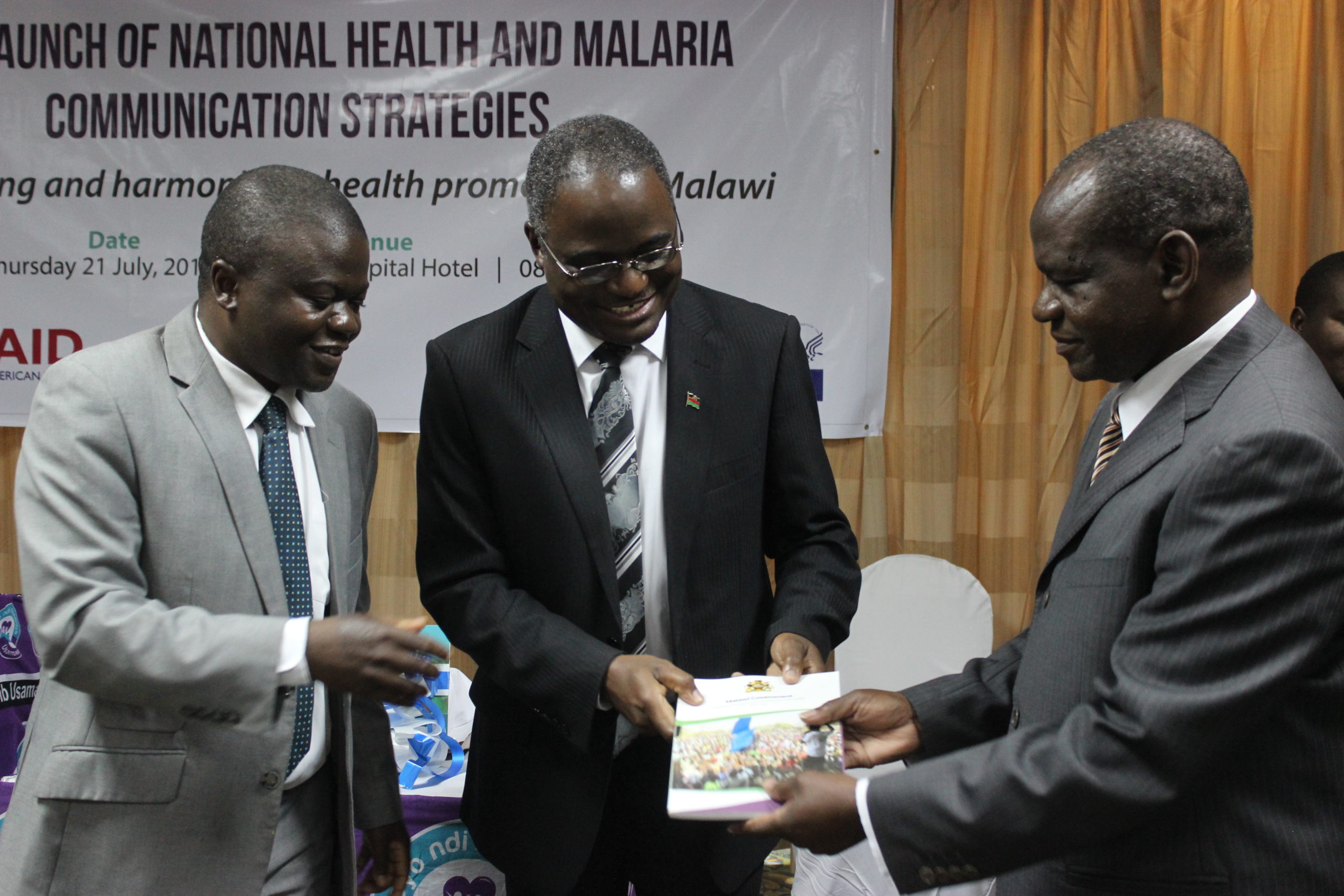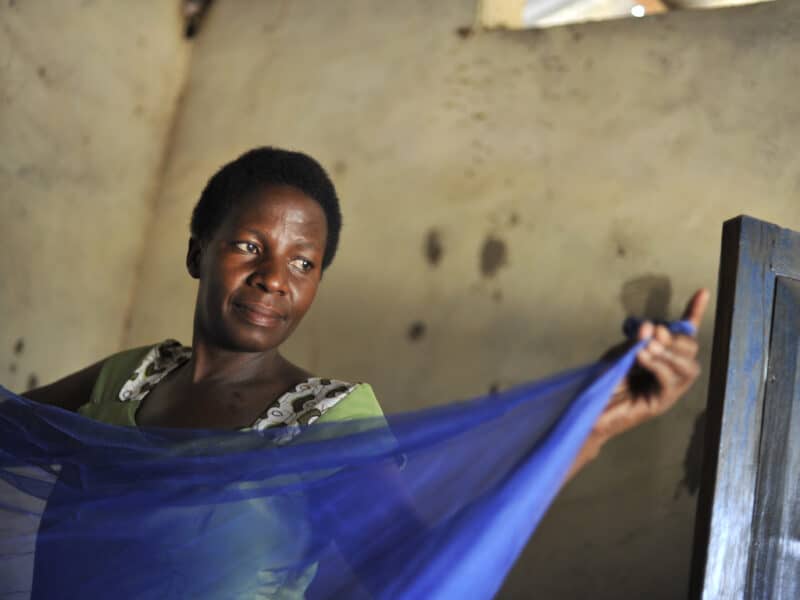On July 21, 2016, the Malawi Ministry of Health held a joint launch for the National Health Communication Strategy (NHCS) and the Malaria Communication Strategy at Capital Hotel in Lilongwe. The launch was presided over by the Minister of Health, Dr. Peter Kumpalume, and was attended by almost 120 people, including Dr. Eugene Nyarko (WHO), District Health Officers and Health Promotion Officers from across the country, along with representatives from the United Nations Population Fund (UNFPA), Elizabeth Glaser Pediatric AIDS Foundation (EGPAF) and Peace Corps. USAID Malawi was represented by the Health Office Director, Mr. Peter Halpert.
In his remarks, the Minister highlighted the importance of communication and encouraged all stakeholders to use the two strategies for the benefit of Malawians.
According to Dr. Kumpalume, “The ultimate aim of the National Health Communication Strategy is not only to reduce mortality and morbidity rates but also to build a nation of individuals who have the knowledge, skills and motivation to make healthy choices and strengthen the health and well-being of communities across the country.”
The NHCS takes a holistic, integrated and people centered approach by using evidence based communication models, theories and approaches. This strategy is intended for program designers, implementers, technical working groups and others who are using health communication to promote healthy behaviors and well-being in Malawi.
The strategy covers priority conditions, including:
- malaria,
- HIV,
- maternal, newborn and child health,
- nutrition
- neglected tropical diseases, and more.
The NHCS is designed to be the basis upon which all other health communication strategies will be developed and implemented, including the new Malaria Communication Strategy, a 5-year initiative that is a deepened version of the malaria component of the NHCS.
The CCP-led Support for Service Delivery Integration (SSDI) – Communication provided technical expertise in strategic social and behavior change communication (SBCC), strategy design and capacity building to the NHCS. SSDI-Communication also supported the Ministry of Health in the development of the strategies by coordinating and facilitating design meetings and workshops.
Most notably, the Ministry of Health chose to adopt the slogan and logo of the SSDI-Communication platform Moyo ndi Mpamba (Life is precious) for the NHCS. That means that Malawians will continue to hear the message that through small, workable steps, like correctly using mosquito nets and eating a nutritious diet, people can live a good and healthy life.





